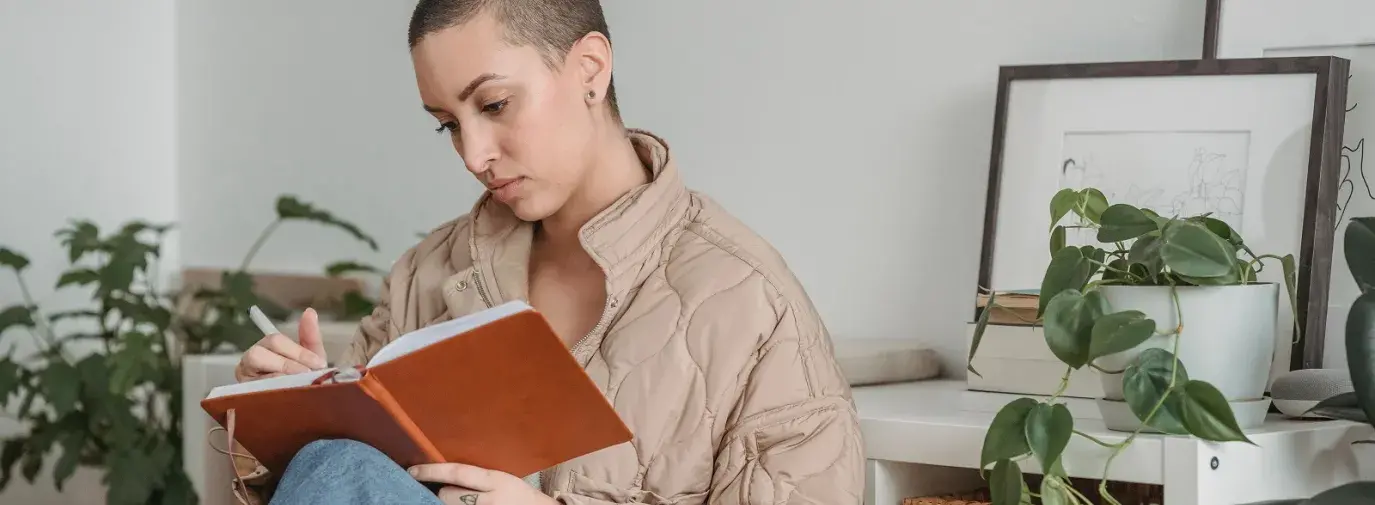
Throughout this pandemic, many of us have spent more time at home than ever before. For those who work remotely, our homes became our place of work, school, entertainment, and refuge from covid-19. Those of us who continued working on location were at home more during time off. Before the virus spread, the average American spent 99 hours in traffic every year. Since the pandemic, this number has fallen to 26 hours. That’s a significant gift of time that offers us an opportunity to reflect on our priorities and the way we spend our time.
We asked Green Americans how setting intention has changed how they go about their daily lives. Some of them noticed green side effects—here’s what they had to say:
Setting Boundaries.
When your work and home life blend, it’s more important than ever to set boundaries. Creating hours that work for you (even if not the traditional work hours), sticking to that schedule and resisting checking emails at all hours of the day helps create balance and time to recharge. In our culture of busy, where we’re bombarded with messages telling us if we’re not working all of the time, we must be lazy—setting boundaries around our work life can be freeing. Making time for rest and joyful activities without guilt became crucial to mental health in covid times. Each time we set a boundary, it becomes easier to practice setting them elsewhere.
Time outside.
With so many entertainment venues closed, we met our friends outside more than ever before and got our exercise around the block instead of at the gym.
Many Green Americans intend to continue meeting their friends and family outside for walks and bike rides, instead of meeting indoors as often as they used to.
Gardening.
Many Americans began gardening during the pandemic due to food shortages, a desire to avoid going shopping and to simply have something to do. Thousands of new gardens were added to Green America’s Climate Victory Gardens map. Growing a home garden improves your own physical and mental health; it helps capture carbon and improve the environment, and it helps reduce the carbon footprint of our food since the produce doesn’t have to travel thousands of miles to reach you.
More time with close family.
Some Green Americans who were able to work from home reflected on being able to have breakfast with their partners in the morning, as well as more time in the evening to share a home-cooked meal and spend quiet time together. While we missed seeing our friends and family in person, it was nice to spend more quality time with those with whom we live.
Less commuting stress.
Some Green Americans reflected on how stressful their commutes used to be. Late buses, packed trains, rushed mornings. Many of us experienced high stress and anxiety every day going to and from work, arriving at our destinations in a less-than-calm state. We prefer to stick to calmer, more intentional mornings post-pandemic, thank you very much.
More home-cooked meals. Less food waste.
You may recall several cooking fads from the early pandemic stages (sourdough bread and pasta chiefly among them). With restaurants closed, many of us were cooking at home a lot more than usual. Home-cooked meals are healthier for our bodies and for our wallets. We feel more connected to our food and its effects on our bodies (and minds) when we cook it ourselves. To shop as little as possible, many of us found creative ways to avoid food waste (hello, carrot top pesto), saving money and preventing methane emissions from rotting food waste. Consider starting your own compost bin if you have the space to do so!
Bonus: Cooking at home means fewer takeout containers in our waste bins, as our climate campaigns director, Beth Porter, pointed out.
Less fuel consumption.
Some were able to skip the commute—even a few days a week—and saved time and helped the planet and their wallets by consuming less fuel. If you commuted by car, that’s less wear and tear on your vehicle, too. You benefit from the cost-savings, and the planet benefits from fewer emissions.
What were some of the ways you were more intentional about your time during the pandemic?
Did spending time at home allow you to
green different aspects of your life?
Each of the colleagues interviewed expressed that they will continue to
be more intentional about their time and energy “post-pandemic.”
How will you hold intentionality?
By setting intention, we become mindful of how we spend our time and where we have room to grow. Be inspired by these stories and pandemic-takeaways to set intention in your own life, now and in the days to come.







